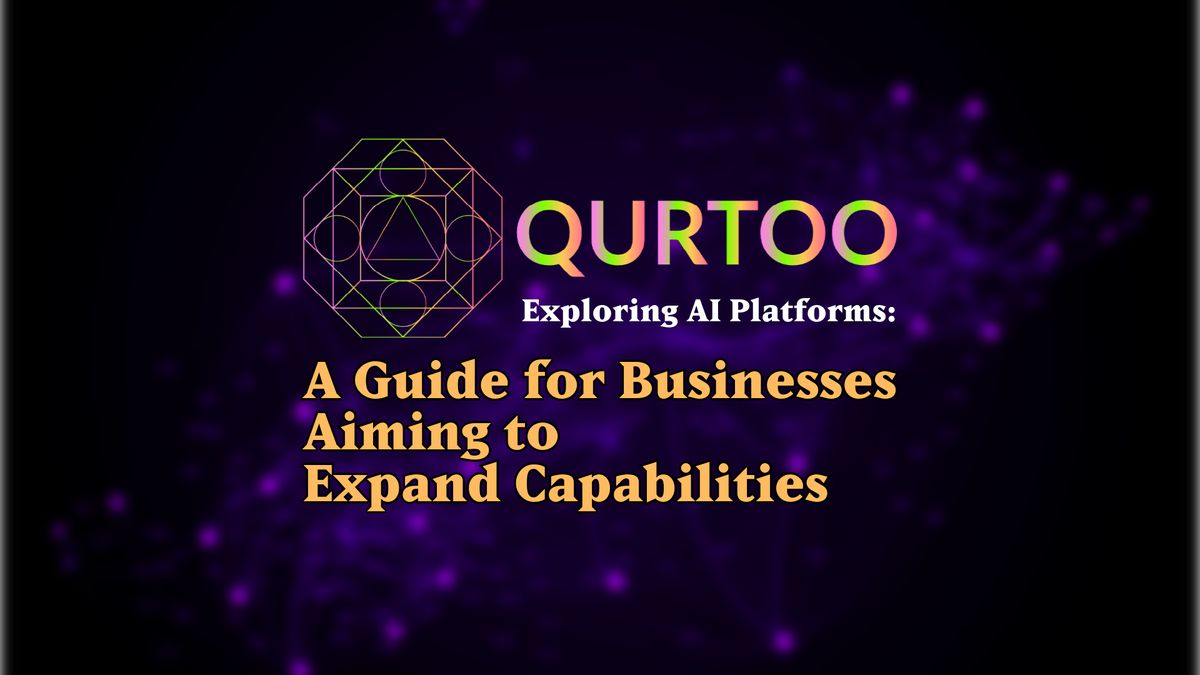Exploring AI Platforms: A Guide for Businesses Aiming to Expand Capabilities

Welcome, let's begin.
I'd like to address the elephant in the room first. Answering the questions a lot of people have around AI adaptations.
Should a business even use AI?
Yes. Most businesses should use artificial intelligence. The real discussion should surround ethics before all else. This new technology is quite a powerful tool when implemented well, and with an alignment that is suited to your businesses ethics documentation, which should be freely available through a webpage that is accessible during and before the sign up process with your service platform, e-commerce store, or other other tools that may process data.
What disclosure should you provide about using AI to clients or staff?
If you have any AI integrated, your staff should know about it, as should the customers who purchase products or services from your business.
Without getting into the deeper topics for brevity on this page, eventually it will either be a requirement anyway, or customers won't trust companies without this type of documentation. Stay ahead of this one.
Do you need to disclose anything if it's an internally managed system instead of using OpenAI, HuggingFace, Anthropic, or even Bard?
Yes, definitely. Link to their privacy policies too if you're using their stuff on your pages, especially when it's installed on the server you're using.
Is it really something the team can learn?
Most of your team will be able to successfully complete a higher level of output for their field, within reason. Even without understanding all of the technical aspects, someone with a deep understanding of a particular topic will be able to obtain significant results, higher output capability, as well as discovering new ideas and ways of going about building projects within the guidelines from your brand, company, or project, much more effectively.
What if you are a professional writer already?
There's a lot to unwrap here, so this will be addressed further on a different day, but the overall goal of someone who already writes in a professional and fashioned style should likely use the tool a bit differently, since there is no need to produce written content with the tool, you could instead use it to conduct research, find research papers that discuss your topic, or even discover a way to bring in another audience to the mix.
You have two choices, keep up with the others who will use the tool, or don't.
Why bother with something like AI? It diminishes the work.
It can diminish the work, especially if you use it in really basic ways. This, just like any other tool or software, must be learned. Knowing how to use this technology is the best way to provide more value, faster output, quality analysis, sentiment analysis, building spreadsheets from a picture on a napkin... etc.
I'm not going to convince you to use AI, that isn't the goal for this. I think with proper ethics, yes, a company should use this technology since it will dramatically increase the teams output levels, reduce the mundane and time consuming tasks, and free up innovation. The goal is to provide the value of the new tool available for people who need to understand it. Curious minds like to know how to do things.
What Are The Different AI Platforms?
And which should I pick?
Here's the main players for a 'new to AI' audience:
- ChatGPT from OpenAI - Likely the one you heard of first.
- Claude from Anthropic - for long length writing requirements. Can comply with HIPAA.
- Bard from Google - for simple tasks and formatting.
- HuggingFace Spaces - for exploration of concepts and ideas.
These platforms are crafted to reduce the barrier to entry for individuals or organizations looking to leverage AI technologies without a steep learning curve. Picking the right one is based on your level of prompting ability, specified use case, and internal operations procedures.
If I had to pick one for general use, I'd go with OpenAI. If I was primarily using it to assess information, allow for HIPAA compliance and some non-profit benefits, or perform creative writing, I'd go with Anthropic. If I wanted to give myself a mental break and let my mind wander to discover new ways of integrating (x) task into my work day, I'd check out HuggingFace Spaces. I personally haven't found much need for Bard, because swapping away from one to the other is a weird workflow chain. It does work for some people, but I'm not into it. I'd rather build specific use case highly effective micro-apps, or prompts when that will do the trick.
Costs
Relatively cheap, unsurprisingly. Remember, if it's free, you're the product. This is generally the safe assumption to make, but read the terms and conditions and how they manage data to make sure you can even use it for your use case. You can check the rates yourself on the respective websites. The membership for premium ChatGPT on a personal account is $20/mo, so hopefully that sets your expectations correctly before looking at the pricing. The API for applications can be more or less, depending on how much it is used.
Running your own LLM on your own hardware is very possible, and relatively affordable for most companies. To get at least one system upgraded appropriately, you'll be in the $9,000 + range for a consumer level product that will run it well enough for one user at a time. The more robust the system, the more cost, but the cost scales fairly reasonably. Companies are also beginning to offer data protection policies more favorable to the customers as well, with business in mind.
What to Explore With an AI when I try it?
Give it the expectation test
Come up with a list of questions to ask the ai that will allow you to better understand how it works, how it perceives the world, and how it wants you to interact with it in order to get the best result.
Here's some sample questions:
What is the most important aspect of [profession]
Note, replace [profession] with an actual profession that you understand quite well.
The goal of this excersize is to gain an understanding of what it is that you are speaking with. This will also preface the context in which the conversation will conducted in, which is arguably the most important aspect of speaking natural language to a machine. Without proper context, the machine cannot operate as it is intended to.
Sure, you can use a CD-Rom tray as a cup-holder, but that's not the goal here, we're not using this tech like a toy, we want to know how to make it do stuff for us.
First rule, always make sure context is on point. It's going to be easier for you to do exactly that if you know what terminology the system is best optimized for to achieve your goal.
How do we learn how to make the right questions in the right context?
You subscribe to the website. Let's get started.
